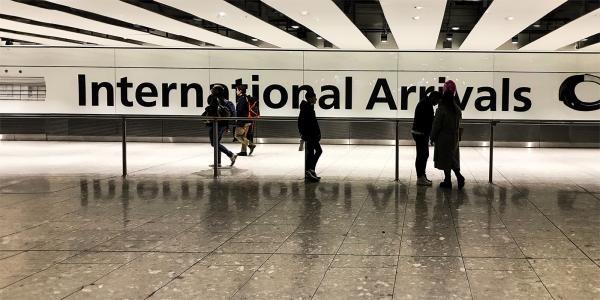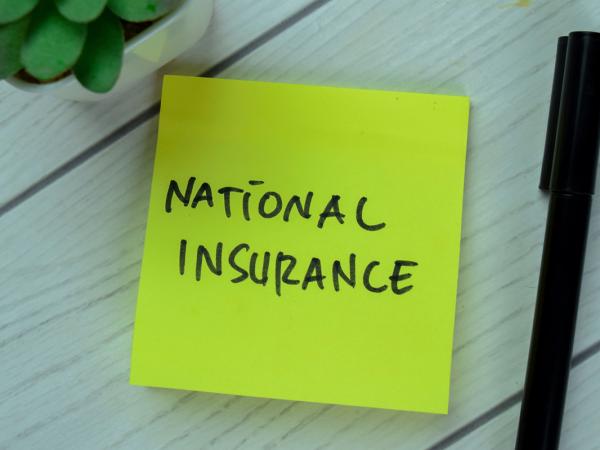NIC for posted workers from the EEA or Switzerland
We discuss below the social security contributions and benefits positions if you are sent to work in the UK by your employer in the EEA or Switzerland.

Content on this page:
Introduction
You may not have to pay National Insurance contributions (NIC) if you were employed in another country but were then sent to the UK to do your present job working for the same employer (as long as you are not replacing another worker). This is to minimise the social security contribution record of internationally mobile workers being fragmented across different member states.
The old co-ordinated EEA rules
If you were posted to the UK from an EEA country (or Switzerland) prior to 31 December 2020 then the co-ordinated EEA rules on social security apply for as long as your circumstances remain unchanged.
These rules can also continue to apply if you have a change of circumstances, but you nevertheless continue without interruption to be in one of a number of specified ‘cross-border’ situations involving both the UK and a member state. This is sometimes referred to as an ‘uninterrupted cross-border link’. For further details, please refer to Article 30 of the withdrawal agreement.
A ‘posted’ worker is a worker who is sent to work in the UK by their non-UK employer and they remain employed by that non-UK employer.
If you remain in the UK at the end of the transition period and your circumstances remain unchanged then you should continue to be covered by the co-ordinated EEA rules on social security. These rules can continue to apply if you have a change of circumstances but you nevertheless have an ‘uninterrupted cross-border link’ between the UK and your home country.
The new protocol on social security coordination
If you are posted to the UK from an EEA country (or Switzerland) for the first time after 31 December 2020, then you are not covered by the UK’s withdrawal agreement from the EU and hence the old co-ordinated EEA rules on social security do not apply.
This may also be the case where an individual is posted to the UK from an EEA country (or Switzerland) prior to the end of the transition period and they have a ‘cross-border link’ (see above) at 31 December 2020, but owing to a change of circumstances that cross-border link is broken (at a later date).
In this case, the next step is to consider whether the new protocol on social security coordination applies to you. This will generally be the case where all of the following apply:
- You are not covered under the UK’s withdrawal agreement from the EU (and therefore the old co-ordinated EEA rules on social security).
- You are legally residing in either the United Kingdom or an EU member state.
- You are, or have been, subject to the social security legislation of either the UK or an EU member state.
- You are in a ‘cross-border situation’, which means that your situation arises between the UK and an EU member state. For example, you normally live in France but your employer sends you to work temporarily in the UK.
Your nationality is not relevant.
If you are posted from an EEA member state which is not in the EU (these countries are Norway, Iceland and Liechtenstein), or Switzerland, and you have no connection to an EU member state, then your circumstances are not covered under the new protocol on social security coordination. See the guidance on GOV.UK for more information.
Posted workers: general rule
Under the old co-ordinated EEA rules
Generally, people who are posted to the UK for no more than 24 months must remain in their home country social security scheme. If this applies to you, you do not have to pay NIC in the UK.
For longer assignments, as an exception, an agreement can generally be reached between the home and UK authorities for a posted worker to stay in their home country scheme for a longer period, typically up to five years.
Similar rules apply if you are self-employed and come to work temporarily in the UK.
If you fall under these rules, you may not need to get a National Insurance number. Instead, you will be allocated a different type of reference, which looks something like 54 M4 46 90, and this will be used by HMRC to identify you.
Under the new protocol on social security coordination
All EU countries have opted into a set of rules known as the ‘detached worker’ rules. Under these provisions, people who are posted to the UK for no more than 24 months must remain in their home country social security scheme. If this applies to you, you do not have to pay NIC in the UK.
If you are posted to the UK for more than 24 months, assuming you are not a multi-state worker, you would usually need to pay social security in the UK from your first day of work in the UK. There is no provision for an ‘exception’ like under the old EEA rules.
Posted workers: exceptions
Under the old EEA rules
If you are posted to the UK from the EEA for more than 24 months but less than 5 years, you can request to remain in your home country social security system. If you are posted to the UK for up to 24 months, you must remain in your home country system.
Wherever you are remaining in your home country social security system (that is, you will remain ‘insured’ in your home country), you should ask your employer to obtain a certificate A1 (previously E101) from your home country (the application form will need to be completed by your employer). This form certifies that you remain liable to contribute to the social security scheme only in the country which issued it and for the period of time specified in it (therefore for this period you will be exempt from paying NIC in the UK).
If you are normally self-employed abroad and coming to work temporarily in the UK, you can find out which body can issue the A1/E101 document by contacting your home country liaison office for posted workers. To get the form, you have to prove that the activities you intend to pursue abroad are "similar" to those you pursued in your home country. See the EU guide on posting rules for more information.
Under the new protocol on social security coordination
Unlike the old EEA rules, you cannot argue an exception to remain in your home country social security scheme if your posting is for more than 24 months.
UK social security benefits
If you do not have to pay NIC because you continue to pay into your home country scheme under the European regulations, you will not necessarily lose entitlement to social security benefits in the UK.
The European agreement contains detailed rules for different types of benefit and you should contact the Department for Work and Pensions (Jobcentre Plus) to determine whether you will receive benefits from the UK or from your home country.
If you are hired in the UK by a UK employer (that is, you work in the UK under a local contract), you will have to pay NIC from the outset, which could count towards benefits payable by the UK. Even if you do not claim any benefits in the UK, or are here for just a short time, this NIC is not typically reclaimable when you leave.
The contributions paid are not transferable to another country's scheme. However, periods of contributions paid in the UK may help to determine whether or not you are entitled to state benefits in your home country. This is called the ‘aggregation principle’ and essentially allows you to aggregate (add together) your periods of overseas contributions with periods of UK social security contributions where necessary, in order to meet the overseas requirements as to whether or not the requirements for the minimum number of years’ contributions are met. The contributions themselves are not transferred from one country to another. You can find out more about social security benefits within the EEA on the EU’s website.
If you are an EEA citizen and you have paid UK NIC prior to 31 December 2020 then you should be able to benefit from the ‘aggregation principle’ under Article 32 of the UK’s withdrawal agreement with the EU. This is the case even for periods during which you might pay UK NIC after 31 December 2020. We discuss this further on our page UK state pension if you have lived abroad.
If you are an EEA citizen and you have not paid UK NIC before the end of the transition period (for example, you arrive in the UK for the first time after the end of the transition period), then you will not be covered under the same terms of the withdrawal agreement and your ability to aggregate periods of UK NIC will be determined instead under the new protocol on social security coordination, if applicable.
If a record of UK contributions is needed by the authorities in the other country to decide a claim, they should contact HM Revenue & Customs (HMRC) on your behalf to obtain details of the UK NIC record. However, it is sensible to keep your own records of any UK NIC you have paid so that you can evidence this to the foreign authority if necessary. You can print out a statement of your National Insurance record from your personal tax account.
In some cases, the foreign authority may ask you to obtain one or more of the following:
- a statement to assist sickness benefit claims (formerly known as an E104)
- a Portable document U1 to assist unemployment benefit claims (formerly known as an E301)
- a full statement of National Insurance (formerly known as an E205)
If so, you should contact HMRC. You may need to complete and return form CA3916 enclosing copies of your last payslip and any forms P60 from your employer showing your total pay, tax and NIC deductions issued at the end of a tax year. You can find the CA3916 and guidance on GOV.UK.
The benefit claim in the other country will be decided using that country’s own rules; it will not be decided under UK rules. The fact that the UK issues a statement of contributions paid in the UK does not automatically mean you are entitled to benefits in the other country.
More information
For more information, see HMRC’s RDR1 guidance (paragraphs 11.7 onwards).



